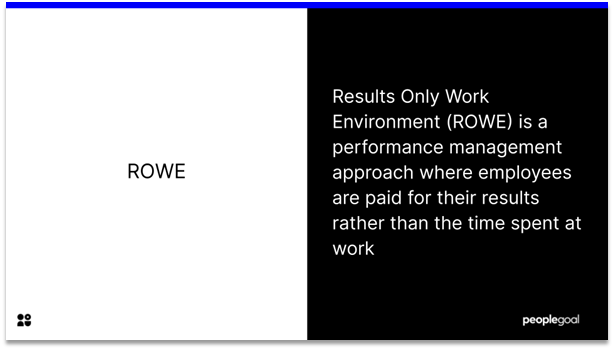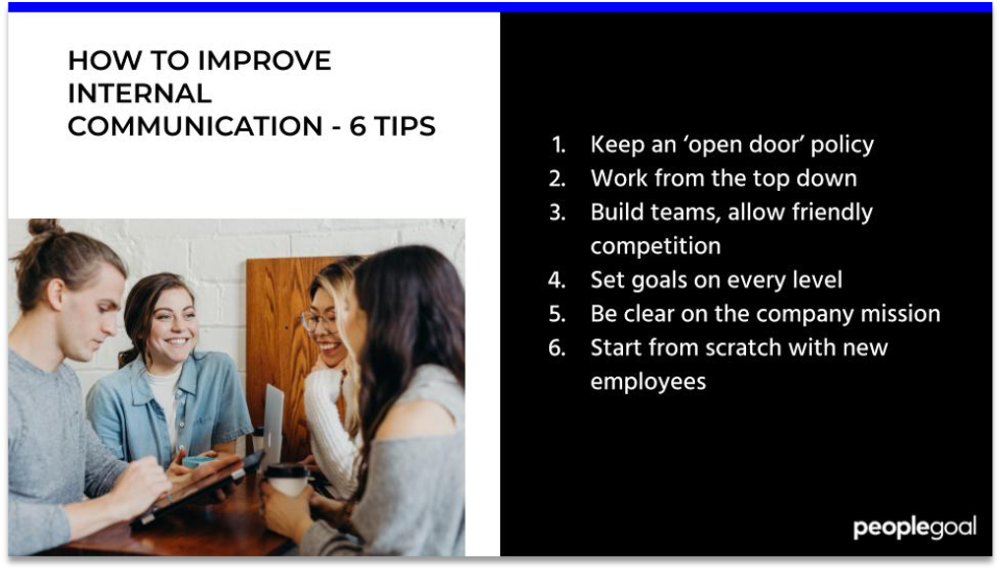Check-ins with your direct reports are vital in monitoring and bolstering their performance. It doesn’t need to be a long and stressful process. You can think of it as a way to keep track of employees’ performance without it seeming like an actual performance review.
What is a Check-in?
A check-in meeting helps managers get updates on current projects and challenges, reinforce team objectives, and uncover potential engagement issues as they arise. In other words, a check-in lets you take the pulse of your team.
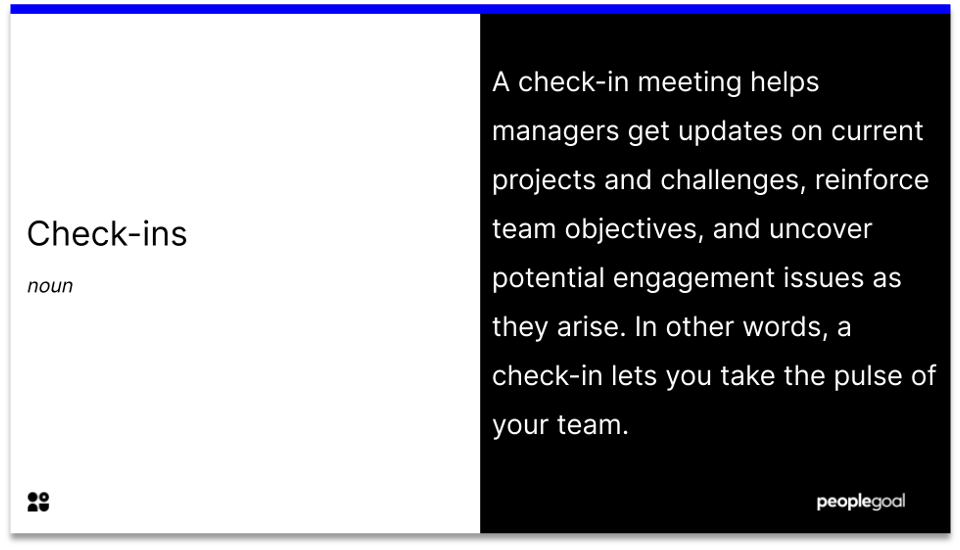
They are more like a one-on-one conversation between managers and employees about their work, goals, welfare, and development plans. They will help you gain an understanding of what your employees are working on, and how you can assist them. Research has shown that when employees feel like they belong at work – which regular check-ins facilitate – they are 3.5 times more likely to contribute to their fullest potential.
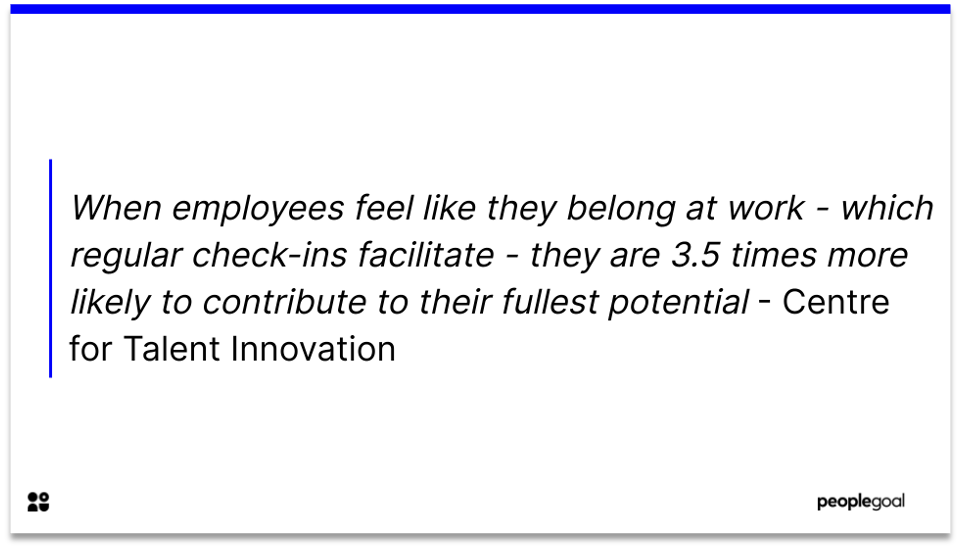
The benefits for conducting regular check-ins:
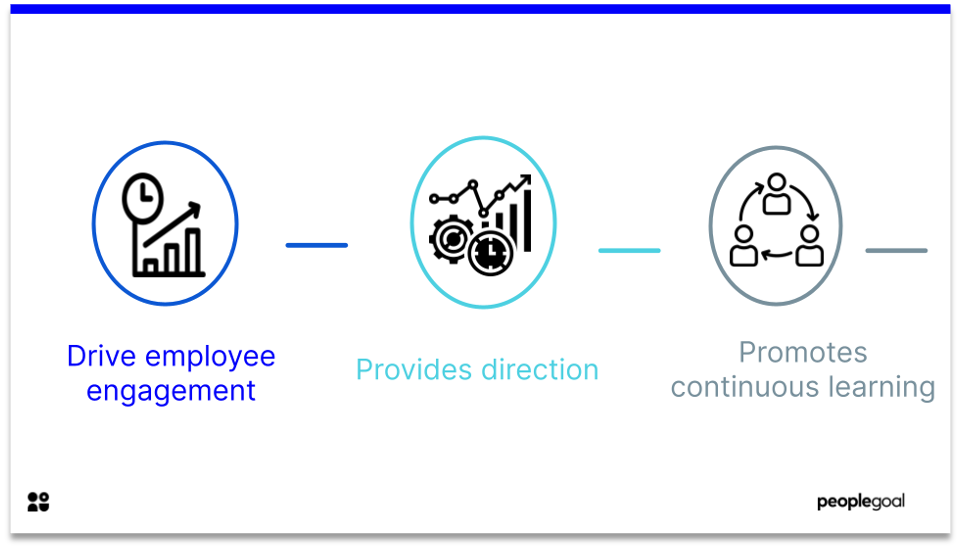
Drives employee engagement
Regular check-ins with employees give managers an opportunity to provide their direct reports with valuable feedback. If this form of communication is done frequently, performance conversations between managers and employees lead to engaging conversations and lead employees to stay engaged with their work. It also allows employees and managers to stay on the same page and to help each other stay.
Employee engagement is becoming increasingly important with remote work making employees feeling isolated and unsupported. Harvard business has found that 40% of those that were surveyed felt physically and emotionally isolated from the workplace.
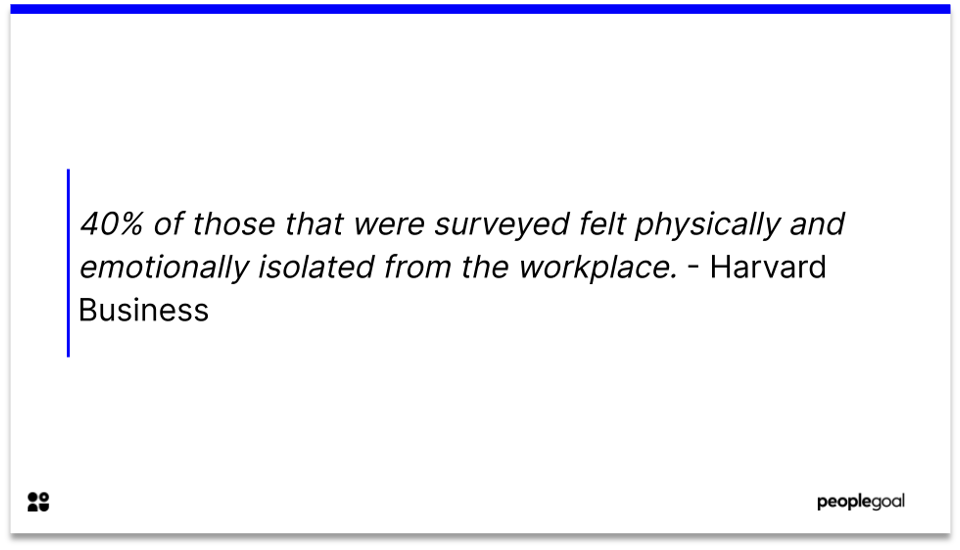
Provides Direction
Conducting frequent employee check-ins allows managers to provide their employees with affirmation in what they’re doing well and helps them communicate with their employees about what they can improve. It gives managers an opportunity to not just point out their employee’s shortcomings but also to help them to work through them.
Promotes continuous learning
No matter what position you are in, you need to keep yourself up to date with the current industry HR Trends. Every check-in that is completed between employees and managers is an opportunity on both ends to learn, grow, and develop. Whether it’s skills for the employee or managerial skills.
If you are conducting check-ins regularly, you open up the opportunity to re-evaluate the employee’s goals and keep them aligned to the organizational goals. Furthermore, it gives the manager the oversight to see what impact they can have on improving the employee’s performance.
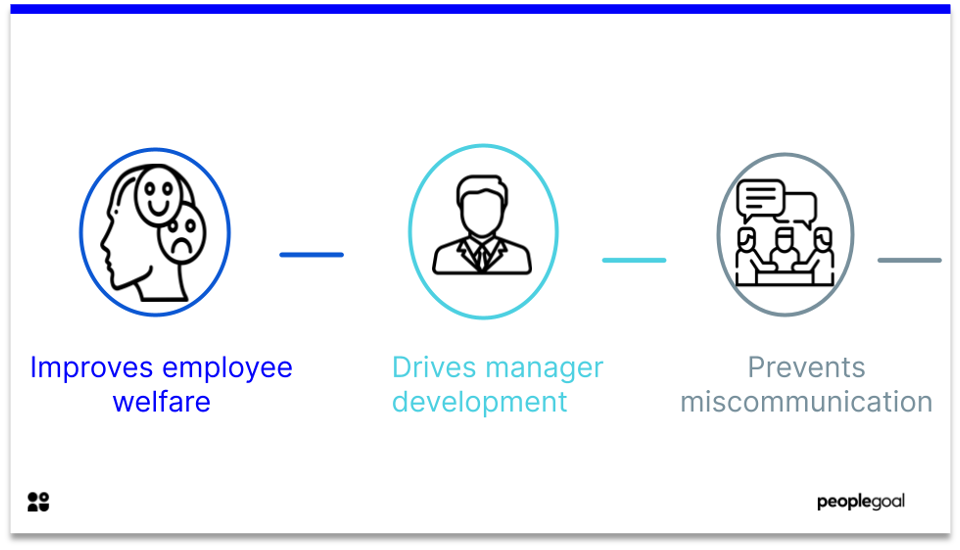
Prevents miscommunication
Regular check-ins mean greater communication, this prevents miscommunications between the employees and the employers. It allows individuals to compare notes, and for the manager’s to make sure their direct reports understand exactly what they are supposed to be doing on the job.
A lack of communication whether it be digital or face to face can lead to misunderstandings or misinterpretations on all manner of performance-related aspects such as strategy and objectives.
Drives manager development
Lastly, just as check-ins can benefit employees’ performance by helping them to achieve their goals, they can also help managers reach their goals of being good leaders. Managers can use the time to ask employees what they can do to be better leaders, and they can also learn from the employee experience. This in turn also puts the manager in a better position for their end-of-year review.
Improves Employee Welfare
The time spent in check-ins also provides employees with the ability to discuss more personal topics in a safe environment, this could be to do with personal extenuating circumstances or the like. This provides management with the opportunity to bring out an empathetic side which will develop employees feeling of value, and further motivate them.
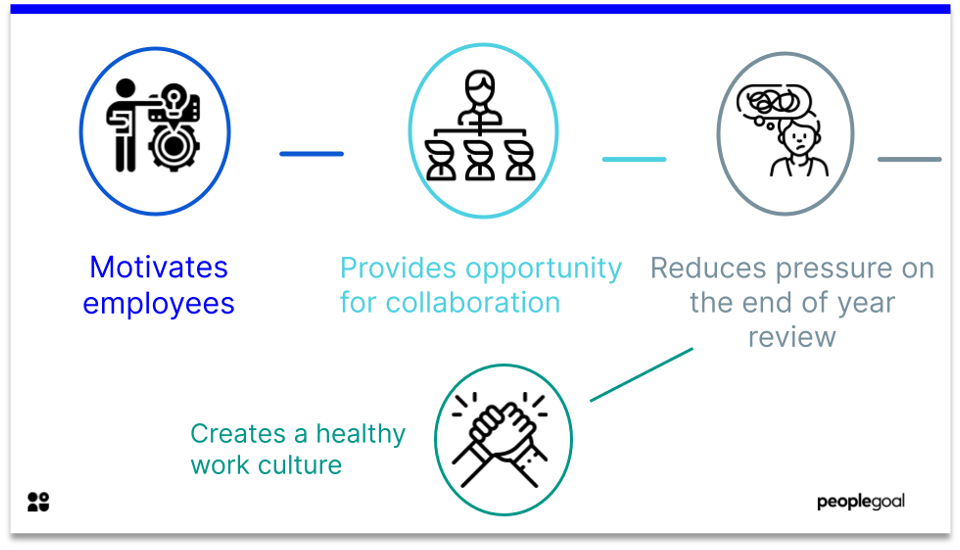
Motivates employees
Holding regular check-ins to discuss employees’ performance plans and the strategies available to improve their performance is a great way to motivate them. This stems from the idea that they are valued as an employee as the management are showing they care about the employee. At the same time, it helps managers boost morale within the team which furthermore contributes to improved organizational productivity.
Provides an opportunity for collaboration
To coin the phrase ‘two heads are better than one is suitable here. If you are regularly meeting with your employees, you’re creating more opportunities for collaboration and brainstorming. This time can be used to solve problems on both ends. Harvard business found that 39% of employees feel the greatest sense of belonging when their colleagues and leaders check in with them regularly. Helping improve collaboration and teamwork.
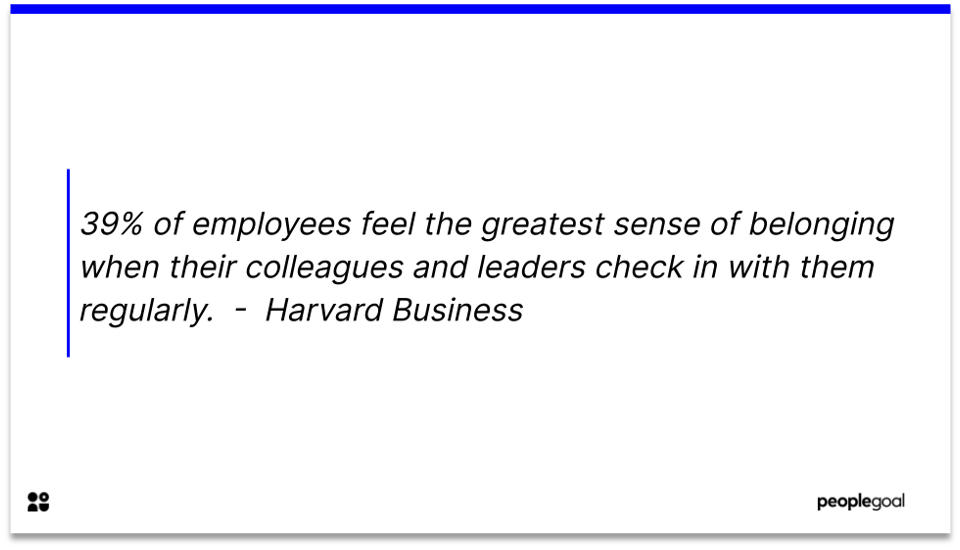 !
!
Reduces pressure on end of year review
By committing to regular check-ins, you are taking off some of the pressure of the end-of-year review. It gives everyone involved the opportunity to nip performance issues in the bud when they arise since you can identify and solve potential problems as they arise. This can reduce the chances of months of potential mistakes and relieve some of the pressures of the annual performance review.
Create a healthy work culture
Allows for the managers to get to know their employees and then tailor their leadership to suit them when necessary. This promotes a better work culture where everyone feels they are seen and heard. As well as producing a better company performance from increased employee involvement.
Check-ins: The pulse of your business
Check-ins provide a way for you to really get to grips and maintain connection with your employees. They are a great way for you to flag any issues before they become too problematic as well as being able to praise and provide recognition for employee success early – which is the best time to provide motivation.
Ready to 3x Your Teams' Performance?
Use the best performance management software to align goals, track progress, and boost employee engagement.
